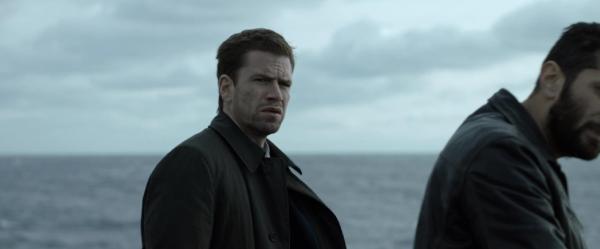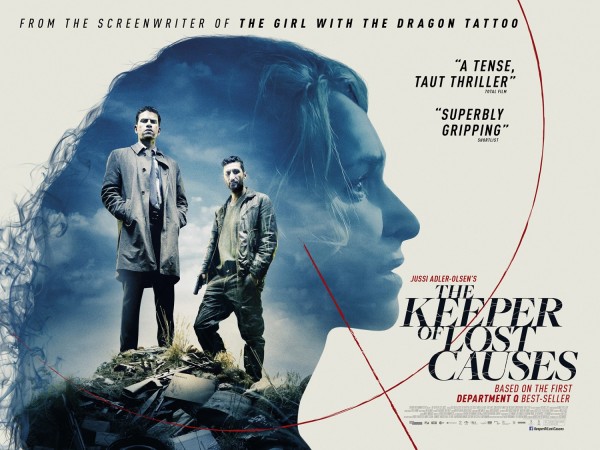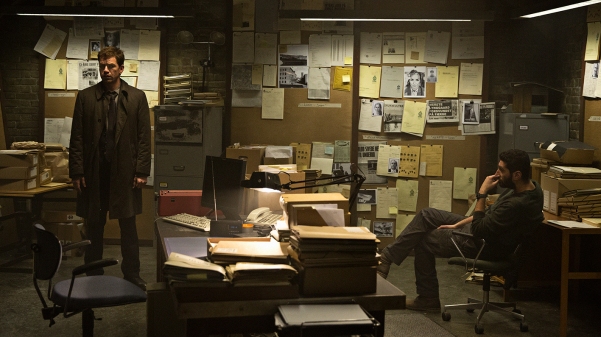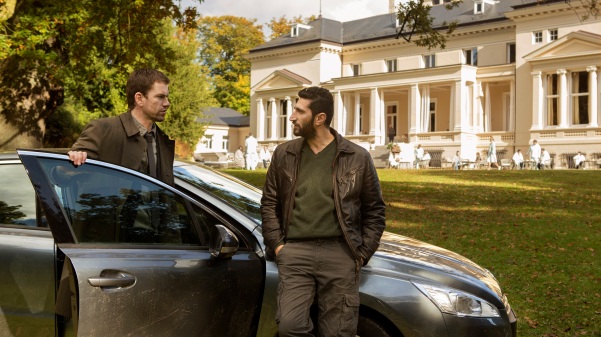The Keeper of Lost Causes (Kvinden i buret) is a Danish movie with subtitles, which might immediately put some of you off – – but you should definitely give this one a go.
Nikolaj Lie Kaas (who some may know from TV serial “The Killing”) plays the gloomy and arrogant homicide detective Carl Mørck. His headstrong attitude lands one of his colleagues in the morgue and another permanently paralysed.
This does not improve his gloomy mood.

His boss also takes a dim view of his performance, and assigns Mørck to a less than promising new department – Department Q. Housed in a dingy basement, he has the mirth-crippling job of wading through 20,000 cold cases with the aim of doing a ‘root cause analysis’ on why they were inconclusive.
His mood declines further.
Just to complete his bed of roses, Mørck is recently divorced and gets no peace at home due to his stepson treating it as a shag-den for his latest conquest, all while playing ear-splitting house music. It’s all enough to turn a man to drink.
Whilst Mørck despises the new job, this is in stark contrast to his new assistant Assad (Fares Fares) who sees the job as a step up in the world from the tedious depot job he came from. (It just proves that everything in life if relative).
Whilst the job is meant to be one of sorting and filing, Mørck quickly gets obsessed with a five year old cold case – that of Merete Lynggaard (Sonja Richter, below) who apparently abandoned her mentally disabled brother Uffe (Mikkel Boe Følsgaard) on a ferry and committed suicide. What was the back story? Why did she do it? Mørck never got the chance to work on the case, as it was handled by a slapdash cop called Bak (Michael Brostrup) who now greatly resents that his work is being questioned.
During the film we flashback to the time of the apparent suicide to see the pressures placed on the lovely Merete (there is a joke in there which you’ll only get if you see the film) and focus on the unlikely, but extremely likable, pairing of Mørck and Assad as they close in on the real truth. To reveal more would provide spoilers to what is a well-crafted crime investigation story written by Jussi Adler-Olsen (who wrote the novel) and Nikolaj Arcel.
Given the generally gloomy mood of the piece, this is not a barrel of laughs (although a barrel of sorts is involved… more humour… “Thank-you, thank-you, I’m here all week”). Think “Girl with the Dragon Tattoo” crossed with the TV show “Cold Case” and a smidgen of Lethal Weapon and you would be about there. However, all the acting is uniformly excellent and the three leads – Kaas, Fares and Richter – are all highly believable. Richter in particular is magnetically good in a challenging role, featuring some of the best dental work since Tom Hanks in “Castaway”.
Direction by Mikkel Nørgaard is brisk and editing tight, with moody music, lighting and photography working well together. Some of the scenes are memorably staged, with some outstanding performances from child stars Olivia Holden and Lucas Lynggaard Tønnesen.
Criticisms? Whilst the film is highly engaging and watchable, this is a genre that has been worked to death, and there is a sense in many of the scenes – one in particular for me involving Uffe and a photo id session – where you are sure you have seen the scene somewhere before but can’t quite place it. And in a number of the set pieces you know exactly where the action is going to go long before it goes there.
But a good film, and one I would encourage you to go see if you can find it anywhere (I saw it at a Picturehouse cinema, with Picturehouse being involved in the UK distribution).
By the way, a Department Q sequel – “Fasandræberne” (or “Pheasant Killers” in English) – is already in post-production featuring Mørck and Assad again. I for one will be watching out for this.
Fad Rating: FFFF.




